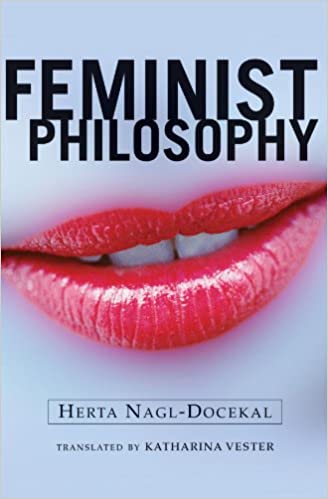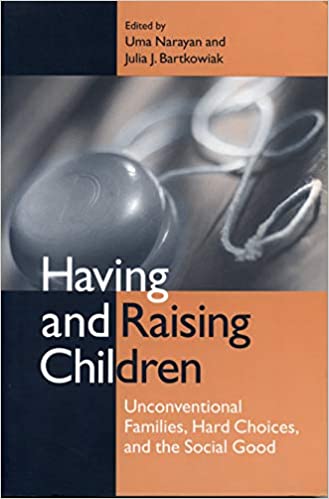Background
Herta Nagl-Docekal was born on May 29, 1944, in Wels, Oberosterreich, Austria. She is the daughter of Friedrich and Anna Kirchmayr Docekal.

Universitätsring 1, 1010 Wien, Austria
University of Vienna where Herta Nagl-Docekal received her Doctor of Philosophy degree.

(Are we in a post-feminist era? Has the term, feminist, gr...)
Are we in a post-feminist era? Has the term, feminist, grown out of its resisted stance? What from today's standpoint is an appropriate concept of feminist philosophy? And is it not the case that all people thinking democratically must share its central concern? In this book internationally acclaimed philosopher Herta Nagl-Docekal discusses and critiques the theories of today. Continually confronting the persistent problem of the hierarchical relations of the sexes, Nagl-Docekal affirms the importance of feminist thought as she presses for effective approaches to common problems.
https://www.amazon.com/Feminist-Philosophy-Theory-Politics/dp/0813365716
1990

(Hans-Georg Gadamer is one of the leading exponents of her...)
Hans-Georg Gadamer is one of the leading exponents of hermeneutics, with a formidable influence on thinking in the humanities. The two main foci of his work have been Greek philosophy, especially Plato, and hermeneutics, but his influences range through many sources, from Kant to Heidegger. This volume contains Gadamer's intellectual autobiography, essays by leading philosophers, Gadamer's replies to each essay, and a bibliography of Gadamer's writings.
https://www.amazon.com/Philosophy-Hans-Georg-Gadamer-Library-Philosophers/dp/0812693426
1997

(Because of his misogyny and disdain for the body, Kant ha...)
Because of his misogyny and disdain for the body, Kant has been a target of much feminist criticism. Moreover, as the epitome of eighteenth-century Enlightenment philosophy, his thought has been a focal point for feminist debate over the Enlightenment legacy - whether its conceptions of reason and progress offer tools for women's emancipation and empowerment or, rather, have contributed to the historical subordination of women in Western society. This volume presents radically divergent interpretations of Kant from feminist perspectives.
https://www.amazon.com/Feminist-Interpretations-Immanuel-Re-Reading-Canon/dp/0271030070#:~:text=Instead%2C%20these%20feminist%20writers%20resituate,%2C%20and%20colonialism%2C%20among%20others.
1998

("We translate what American women write, they never trans...)
"We translate what American women write, they never translate our texts," wrote Helene Cixous almost two decades ago. Her complaint about the unavailability of French feminist writing in English has long since been rectified, but the situation for feminist writing by German-speaking philosophers remains today what it was then. This pioneering collection takes a giant step forward to overcoming this handicap, revealing the full richness and variety of feminist critique ongoing in this linguistic community. The essays offer fresh readings of thinkers from the Enlightenment to the present, including those often discussed by feminists everywhere - such as Freud, Habermas, Hegel, Kant, and Rousseau - as well as some less subjected to feminist critiques such as Benjamin and Weininger. In their introduction, the editors provide the context for understanding both how these essays fit into the larger picture of developing feminist theory and what makes their contribution in some ways distinctive.
https://www.amazon.com/Continental-Philosophy-Feminist-Perspective-Re-Reading/dp/0271019638
2000
Herta Nagl-Docekal was born on May 29, 1944, in Wels, Oberosterreich, Austria. She is the daughter of Friedrich and Anna Kirchmayr Docekal.
Herta Nagl-Docekal studied philosophy, history, and German studies at the University of Vienna where she received a Doctor of Philosophy degree in 1967.
Herta Nagl-Docekal, after receiving her doctor's degree, has cooperated with philosophers in the United States and in Canada since 1970. In both countries, she has frequently participated in international conferences, for instance, conferences of the American Philosophical Association, the Canadian Philosophical Association, and the International Association of Philosophy and Literature, and has presented guest lectures, for instance, at Harvard University, at Lehigh University, at the Canadian Royal Society, and at the Universities of Calgary and Edmonton.
In 1980 she joined Millersville University as an adjunct professor. From 1990 till 1991 she was a visiting professor at Utrecht University. Then she worked as a visiting professor at Goethe University Frankfurt in 1991-1992, the University of Konstanz in 1993, the Free University of Berlin in 1994-1995, and the University of Innsbruck in 2000-2001. Currently, she is a professor of philosophy at the University of Vienna.
In addition to her main activity, Nagl-Docekal is actively engaged in writing and editing books. Her writings published in English include the most popular Feminist Philosophy (1990) in which she discusses and critiques the theories of today. Her study ranges across philosophical anthropology, aesthetics, philosophy of science, the critique of reason, political theory, and philosophy of law. Feminist Philosophy confronts the entire field with the problem of the hierarchical relations of the sexes. She is also an editor of or contributor to such books, as Biopolitics: The Politics of the Body, Race, and Nature (1995), The Philosophy of Hans-Georg Gadamer (1997), Feminist Interpretations of Immanuel Kant (1998), Continental Philosophy in Feminist Perspective: Rereading the Canon in German (2000), Rethinking Modernity: Philosophy, Values, Gender (2002), and others.
Besides, Herta is a contributor to periodicals and scholarly journals. Her essays were published, among others, in Hypatia: A Journal of Feminist Philosophy, in Philosophy and Social Criticism, and in A Companion to Feminist Philosophy (1998). She is also an editor and co-editor of book series and periodicals published in Germany and Austria.
Herta Nagl-Docekal is an internationally acclaimed philosopher and an outstanding educator particularly known as a professor of philosophy at the University of Vienna. For her activities, she received numerous honors, including the 1983 Förderungspreis and 1997 Käthe Leichter Prize. She was also listed as a noteworthy Philosopher by Marquis Who's Who.
(Are we in a post-feminist era? Has the term, feminist, gr...)
1990(Hans-Georg Gadamer is one of the leading exponents of her...)
1997(Biopolitics: The Politics of the Body, Race, and Nature i...)
1995("We translate what American women write, they never trans...)
2000(Because of his misogyny and disdain for the body, Kant ha...)
1998Herta Nagl-Docekal is a member of the Society for Women in Philosophy, Austrian Academy of Sciences, European Forum Alpbach, International Federation of Philosophical Societies, Internationale Hegel-Vereinigung, Internationale Hegel-Gesellschaft, Institut International de Philosophie in Paris, and the Austrian section of International Association for the Philosophy of Law and Social Philosophy. She is a member of board of directors of the Institute for Human Sciences in Vienna and Kulturwissenschaftliches Institut am Wissenschaftszentrum Nordrhein-Westfalen.
Herta Nagl-Docekal married Ludwig Nagl on April 10, 1970.
